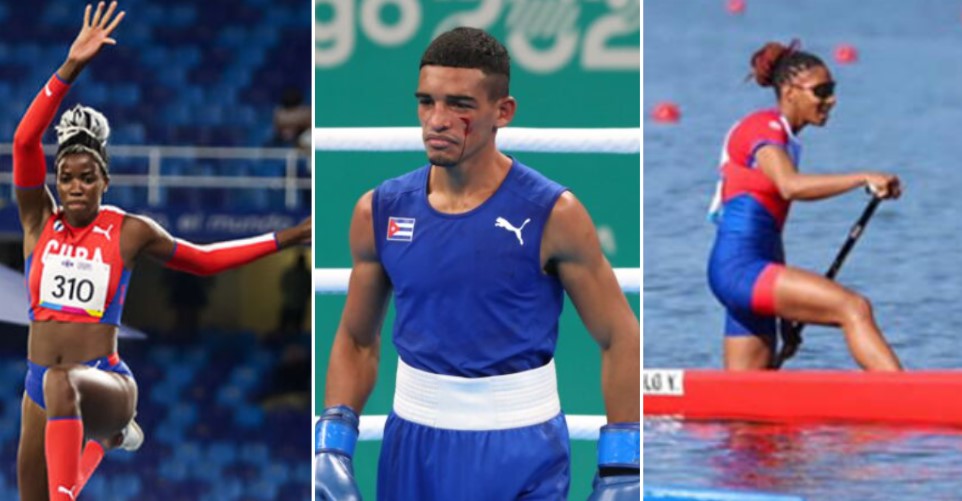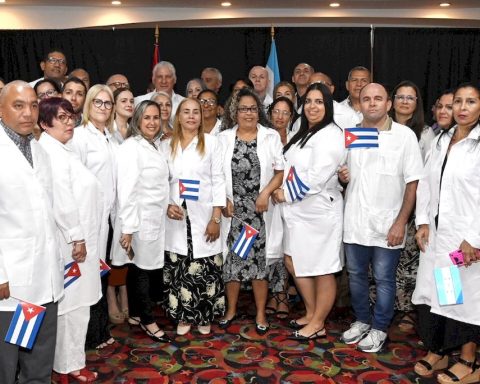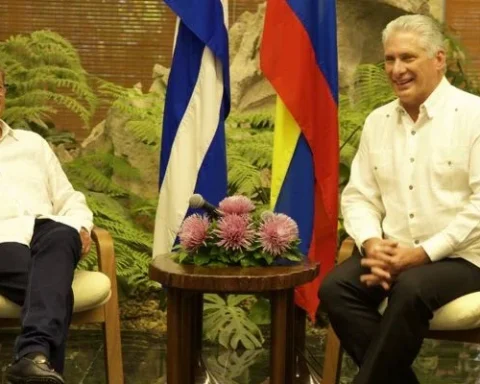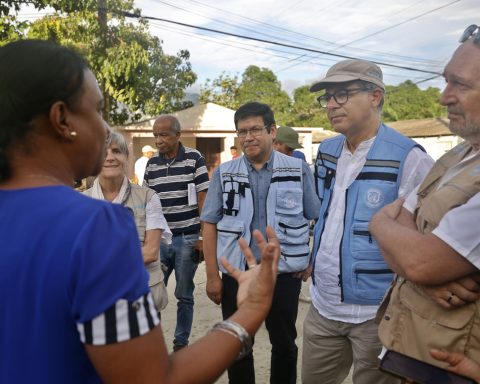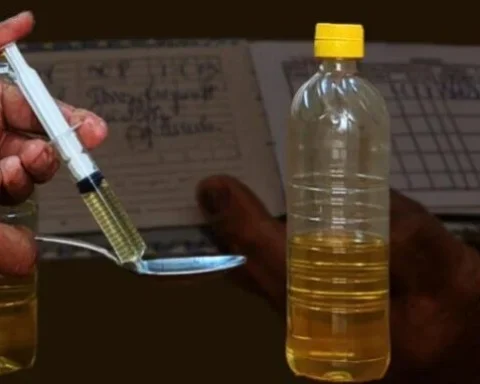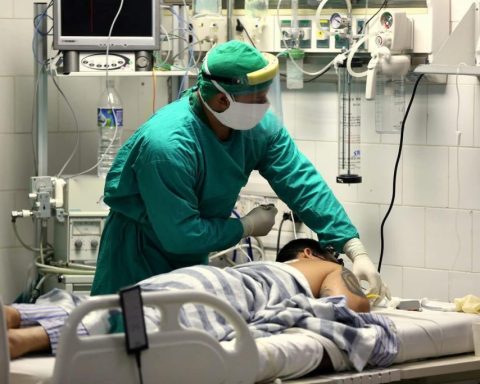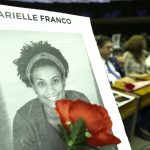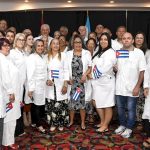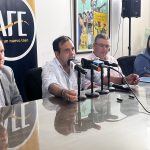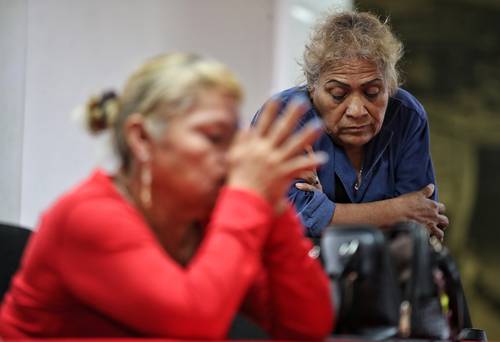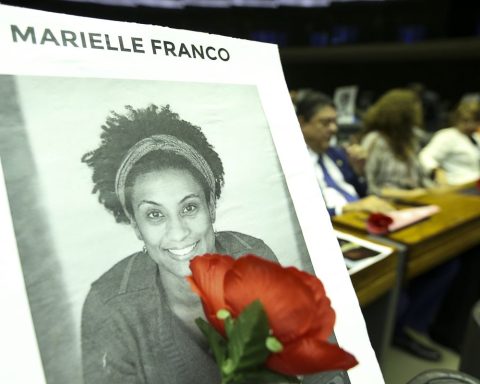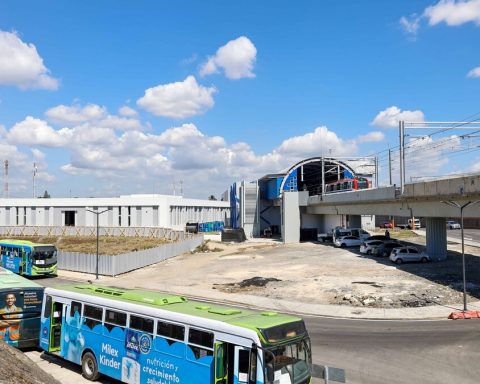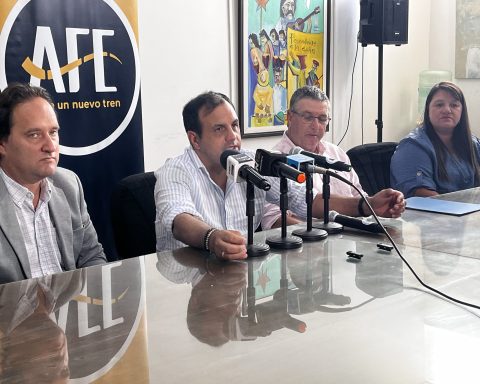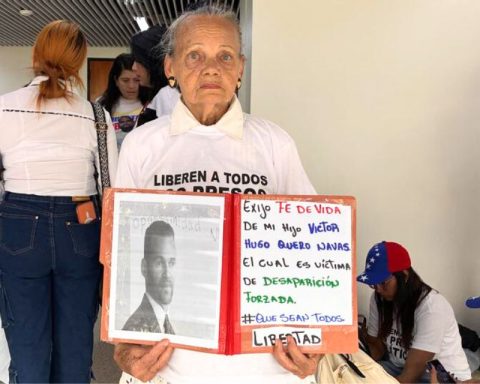HAVANA, Cuba.- In BarcelonaA little over thirty years ago, Cuba proclaimed to the four winds that it was a sporting power by placing fifth in the overall medal table, ahead of powerful delegations such as Japan, Australia, France, South Korea and the United Kingdom.
It was his climax: from then on the bar began to be too high for him. Atlanta and Sydney They still left him space in the top ten, in Athens he was able to give a lot of trouble, but from Beijing onwards everything was uncertainty and bailing out water from the boat. That said, he never anchored outside the Top 20.
Precisely not leaving that group will be the objective of the delegation —the smallest in six decades—which will compete from July 26 to August 11 in Paris. A goal that might seem undemanding, but given what we have seen (that is, the progressive devaluation of the island’s athletic movement) it may be the most that can be asked of the delegation quartered in the French capital.
The official delegation
A total of 61 Cuban athletes (34 men and 27 women) will compete in the great French event in 47 of the 329 tests called.
By province, the leading voice will be Havana (14 athletes), Matanzas (7) and Villa Clara, Santiago de Cuba and Camagüey (each with 6), while Ciego de Ávila, Mayabeque and the special municipality of Isla de la Juventud will lack representation.
With an average age of 27 years, the squad from the Greater Antilles will concentrate its participation in the athletics (18), wrestling (10), boxing (5), judo (4) and shooting (4).
The rest of its members will compete in table tennis (3), canoeing (3), rowing (2), taekwondo (2), diving (2), swimming (2), beach volleyball (2), cycling (1), archery (1), pentathlon (1) and weightlifting (1).
The team composition is as follows:
Athletics
Reynaldo Espinosa (100m), Yunisleidys Garcia (100m), Roxana Gomez (400m), Sahily Diago (4x400m), Melissa Padron (4x400m), Lisneidy Veitia (4x400m), Rose Mary Almanza (800m), Daily Cooper (800m), Leyanis Perez (Triple jump), Liadagmis Povea (Triple jump), Lazarus Martinez (Triple jump), Cristian Nápoles (Triple jump), Andy Hechavarría (Triple jump), Luis Zayas (High jump), Alejandro Parada (Long jump), Silinda Morales (Discus throw), Melany Matheus (Discus throw), Mario Díaz (Discus throw).
Wrestling
Yusneylis Guzman (50 kg), Milaymis Marin (76 kg), Alejandro Valdes (65 kg), Geandry Garzon (74 kg), Arturo Silot (97 kg).
Greco wrestling
Kevin de Armas (60 kg), Luis Orta (76 kg), Yosvani Peña (77 kg), Gabriel Rosillo (97 kg), Mijain Lopez (130 kg).
Boxing
Alejandro Claro (51 kg), Saidel Horta (57 kg), Erislandy Álvarez (63.5 kg), Arlen López (80 kg), Julio César La Cruz (92 kg).
Judo
Maylín Del Toro (63 kg), Idalys Ortiz (+78 kg), Iván Silva (90 kg), Andy Granda (+100 kg).
Shot
Laina Pérez (25 m rapid pistol), Lisbet Hernández (10 m air rifle), Leuris Pupo (25 m rapid pistol), Jorge Félix Álvarez (25 m rapid pistol).
Table tennis
Daniela Fonseca (Mixed Doubles), Jorge Moisés Campos (Mixed Doubles), Andy Pereira (Single).
Rafting
Yarisleidis Cirilo (C1-200 m and C2-500 m), José Ramón Pelier (C1-1000 m), Yinnoly López (C2-500 m).
Rowing
Yariulvis Cobas (Single pair of short oars), Reidy Cardona (Single pair of short oars).
taekwondo
Arlettys Acosta (+67 kg), Rafael Alba (+80 kg).
Diving
Prisis Ruiz (3 m springboard), Anisley García (Platform).
Swimming
Andrea Becali (200 meter freestyle), Rodolfo Falcón Jr. (1500 meter freestyle).
Beach volleyball
Noslen Diaz, Jorge Luis Alayo.
Cycling
Arlenis Sierra (Route).
Archery
Hugo Franco (Recurve bow).
Pentathlon
Mark Antonio Rojas.
Weightlifting
Ayamey Medina (81 kg).
The emigrated delegation
The review of Cuban attendance at the Parisian event cannot ignore the reference to the 21 emigrants who will defend other pavilions, several of them with the label of medal favourites in their respective disciplines.
In fact, the triple jump could bring a podium of ‘defectors’ given the presence of stars Pedro Pablo Pichardo (now with Portugal), Jordan Diaz (Spain) and Andy Díaz (Italy).
Others who will have real chances of winning medals are boxers Loren Berto Alfonso (Azerbaijan), Emmanuel Reyes (Spain) and Javier Ibáñez (Bulgaria), as well as volleyball players Wilfredo León (Poland), Yoandy Leal (Brazil) and Melissa Vargas (Türkiye).
The relationship continues with the javelin thrower Yulenmis Aguilar (Spain), the judokas Maria Celia Laborde (United States) and Ana Laura Portuondo-Isasi (Canada), fencer Neisser Loyola (Belgium), hurdler Yasmani Copello (Turkey) and wrestlers Frank Chamizo (Italy), Yasmani Acosta and Néstor Almanza Jr. (both under the Chilean flag).
Meanwhile, Ismael Romero will be at the basketball tournament wearing the uniform of Puerto Rico, a country that also has sailor Pedro Luis Fernández Jr.
Worthy of special mention is the case of the Refugee Olympic Team (ROT), which will include weightlifter Ramiro Mora, currently resident in the United Kingdom, and canoeist Fernando Dayán Jorge, who after winning the last Olympics left a delegation and settled in the United States.
The inclusion of the Cienfuegos star in the EOR motivated an energetic protest by the authorities Cuban sports figures, who a few hours ago demanded his immediate expulsion from the Games, alleging that he “has made disrespectful and fallacious political statements against his country, his people and the sports movement that allowed him to be an Olympic champion in Tokyo 2020.”
The statement added that the decision to include both Cuban athletes in the EOR “was taken behind the back of the Cuban Olympic Committee,” maintained that neither of them “is uprooted by war or persecuted,” and understood that it is a “political manipulation” aimed at “attacking the image of the national sports movement.”
The IOC has not yet commented on this matter.
The prognosis
According to INDER spokesmen, “the commitment to ratify the Island among the Top 20 in the medal table by country”, a goal that “must be achieved with five titles”. More optimistically, President Miguel Díaz-Canel has suggested revising that forecast, since “Cuban athletes can surpass it”.
From there, the questions arise: Is it possible to stay in the Top 20? Definitely yes. Is it possible to achieve five crowns? Maybe, provided there is no domino effect of adverse results. Is it wise to expect a harvest that exceeds expectations? I think not.
In my opinion, the group that traveled to Paris has 15 members with clear chances of getting on the stage at the awards ceremony (which, obviously, does NOT mean that all of them will achieve their goal). I will now list them.
- The triple jumper Leyanis Perez will have the opportunity of a lifetime in the absence of Venezuelan phenomenon Yulimar Rojas. Meanwhile, Lázaro Martínez would have to surprise everyone to overcome the opposition of seemingly superior rivals such as the aforementioned Pichardo, Jordan and Andy Díaz, as well as Burkinabe Hugues Fabrice Zango and Jamaican Jaydon Hibbert.
- In the single-seater canoe at 200 meters, Yarisleidis Cyril could amass glory in a tough fight with the American Nevin Harrison and the Chinese Wenjun Lin.
- The ring seems in a position to provide four medals that would go to the necks of featherweight Saidel Horta, light welterweight Erislandy Álvarez, light heavyweight Arlen López and cruiserweight Julio César La Cruz. Of course, this will depend on different factors (from the organisational structure to the refereeing), although it is worth remembering that Arlen and Julio César are no longer the quasi-invincible boxers of yesteryear.
- Two veterans of the tatami, Idalys Ortiz and Iván Silva, seem capable of performing commendable tasks, although they will hardly be able to reach the top against opponents such as the Japanese Akira Sone and the Georgian Lasha Bekauri.
- As for the fight, there are solid candidates such as Luis Orta, Gabriel Rosillo and Mijaín López, without discrediting Milaymis Marín.
- Finally, we must also consider the options of taekwondo player Rafael Alba and shooter Leuris Pupo, who are not favourites but are used to competing (and profiting) in top-level competitions.
Having made this review, I am going to make my prediction: Cuba will win between 10 and 12 medals, including four or five gold medals that, in keeping with the historical trend, guarantee a place among the top 20.
The main contenders for the thrones? Leyanis and Cirilo, while the other golden prizes must come from wrestling and boxing – at least two, maximum three. Watch out in the ring for Horta, and on the mats for Rosillo. Erislandy seems inferior to the French Sofiane Oumiha, the most recent version of Arlen offers no guarantees, and Julio César will face tough opposition led by the Italian Mouhiidine and the Uzbek Mullojonov.
Moving on to the mats, to be a two-time summer champion Orta will need an anti-missile shield (the Azerbaijani Jafarov, the Serbian Nemes, the Kyrgyz Ismailov…), and Mijaín will have lime (the non-appearance of the Turkish Kayaalp, sanctioned for doping) and sand (on the verge of 42 years old and with a risky competition debt).
Given what we have seen, a good part of Cuba’s hopes rest on the shoulders of athletes in the final stretch of their careers, incapable at this point of displaying the dominance of their peak moments. However, I firmly believe in the possibility of consummating the harvest projected in this article: the resounding collapse predicted by data analysis companies such as Gracenote (with Cuba outside the Top 30) should not occur now in Paris, but in four years, in Los Angeles.
| CUBA IN THE LAST EIGHT OLYMPIC GAMES | ||||
| EVENT | GOLD | SILVER | BRONZE | TOTAL |
| BARCELONA 1992 | 14 | 6 | eleven | 31 |
| ATLANTA 1996 | 9 | 8 | 8 | 25 |
| SYDNEY 2000 | eleven | eleven | 7 | 29 |
| ATHENS 2004 | 9 | 7 | eleven | 27 |
| BEIJING 2008 | 3 | 10 | 17 | 30 |
| LONDON 2012 | 5 | 3 | 7 | fifteen |
| RIO 2016 | 5 | 2 | 4 | eleven |
| TOKYO 2020 | 7 | 3 | 5 | fifteen |
OPINION ARTICLE
The opinions expressed in this article are the sole responsibility of the person issuing them and do not necessarily represent the opinion of CubaNet.
